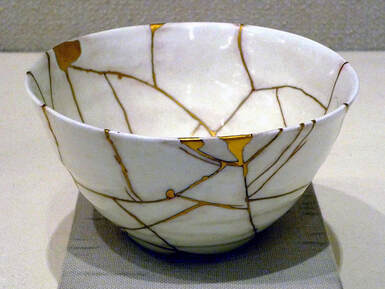
It so happens I was given a birthday gift recently of Jonathan Sacks’ reflections on the weekly portion or parashot of the Torah that is read each Shabbat in the Synagogue. This week the readings are from the Book of Genesis which comes to an end with the account of Jacob on his death bed, summoning his family so he can bless them before he dies. The verses that Rabbi Sacks focuses on in his commentary are the first two of chapter 49: “Gather around so I can tell you what will happen to you in days to come. Assemble and listen, sons of Jacob, listen to your father Israel”, two verses seemingly saying the same thing but the second verse omitting any mention of the future. Rabbi Sacks quotes Rabbi Shlomo Yitzhaki, aka Rashi, an acclaimed authority on the Torah and the Talmud. Rashi suggests that “Jacob wished to reveal what would happen in the future but the Divine Presence was removed from him.” For Rabbi Sacks this is an essential element of Jewish spirituality. “We believe we cannot predict the future when it comes to human beings. We make the future by our choices. The script has not yet been written. The future is radically open.”
This struck me as an appropriate and important message as we face a new year. There is much wrong in our world today – injustices, poverty, violence, zenophobia, all played out on our television screens so that we either become immune to the evil that exists or can no longer look at it or even despair that things will ever change. But the future is an undiscovered reality and it will be what we choose it to be – but only if we are willing to change. This is the message of the prophets who do not foretell the future so much as warn people of the consequences of their actions. If we do not learn to respect and appreciate those who are different from us there will be prejudice and conflict; if we do not care for this planet climate change will bring about the death of the human race; if nations do not cooperate and dialogue with one another they will live in competition and constant war. Perhaps our desire for new year resolutions is an indication that we are aware of this at the personal level. I will not be healthy unless I exercise and eat healthily, I will not be in good relations with those who are dear to me unless I spend time with them, I will not live a fulfilled life unless I serve others – whatever it is that we would like for ourselves and our family. Of course this is not straightforward. As St Paul has told us – the good I want to do I don’t do and the evil I want to avoid I end up doing as I know to my cost if I try to limit myself to chocolate once the box has been opened. What I need and perhaps we all need is a wider vision, an intention which will direct our actions and approach to life. This could be the intention to care for the earth and the environment, to seek the good of all sentient beings, to live in peace and harmony with others, to seek to live by love and compassion. It is this approach to life that makes us shambala warriors, transforming the society we live in by the way we interact with life. It is this approach that makes us workers for the kingdom of God, recognising and supporting the good wherever we are.
When I was a child we started each day with what we called the morning offering. This was a prayer which stated that we offered our day for whatever God;s intention for the world might be. It was a way of putting us in a frame of mind for doing good and making even the simplest of actions meaningful. This prayer has gone out of fashion but to have an intention for each day is I think a good and important one. My own intention as I welcome each day is that it might be for the good of all sentient beings, peace between nations and the well-being of the planet – rather grand intentions but they are genuinely in my heart and I hope making this intention will influence my actions. But does it have any bearing in the world? Well I do accept the Jewish belief in Tikkun Olam that assures us that all our intentions and actions for good, small as they might be, are ways of mending a broken world. I believe the love and compassion we have towards ourselves and others as well as the environment has an effect on this world of ours. Perhaps like kintsugi, the Japanese technique of fixing broken pottery with gold, we can be the gold within the darkness of our world and be quietly and lovingly mending it.


 RSS Feed
RSS Feed
